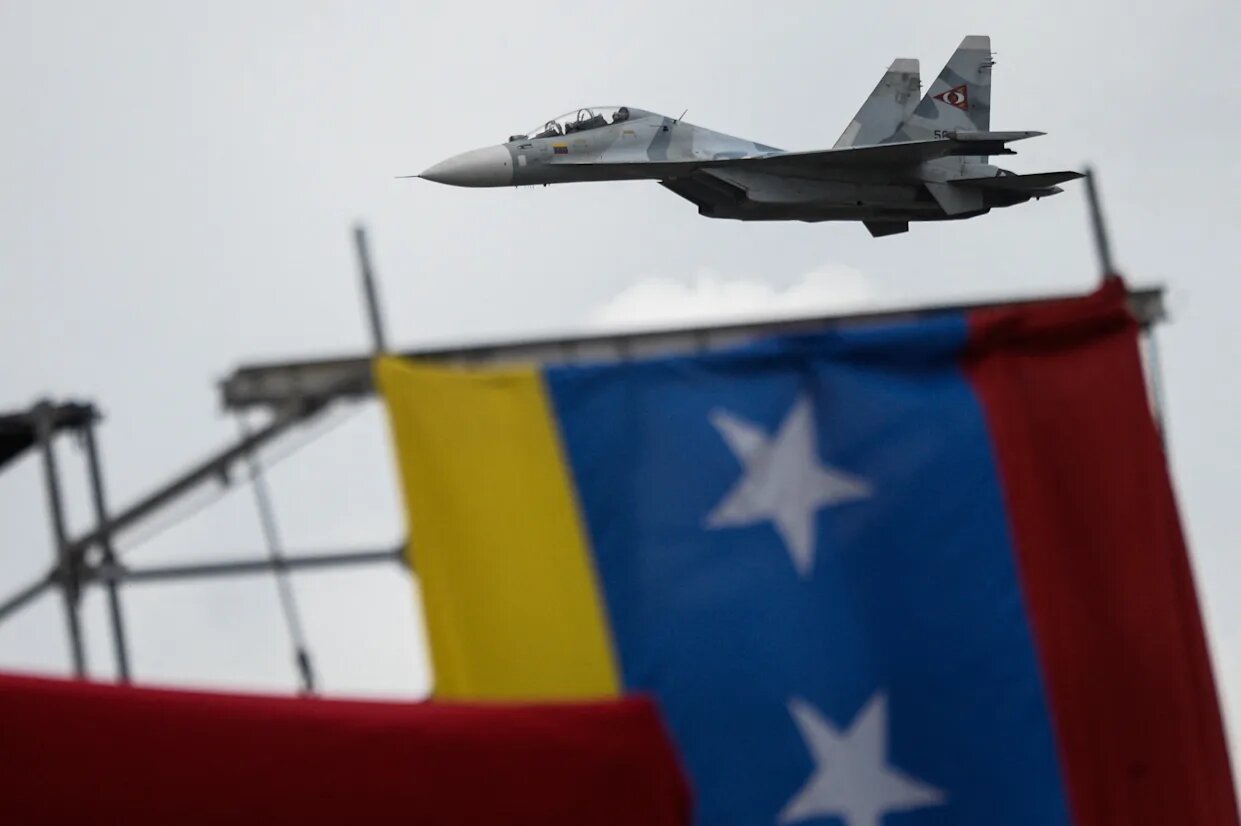Maritime strikes, mainland threats: U.S. military shadows Venezuela amid regime change whispers

TEHRAN – A concentrated U.S. military presence in the Caribbean — warships, patrol planes, MQ-9 drones, an F-35 squadron, and bomber flights — has sharply narrowed the political and diplomatic space around Venezuela.
Supersonic B-1 Lancer flights near the Venezuelan coast on October 23, following B-52 missions joined by Marine F-35s, read less like routine training to many observers than like a calibrated show of force designed to pressure Caracas.
Additionally, the U.S. announced the deployment of troops to Trinidad and Tobago for ‘military exercises,’ just across a channel less than 13 miles from Venezuela’s coast.
Washington says the deployments are aimed at transnational “drug cartels.” Critics, however, highlight the operation’s scale, the shift from law-enforcement language to wartime framing, and the combative rhetoric of the U.S. president and other senior officials.
They argue these elements suggest counternarcotics is serving as a pretext for broader objectives — including regime change and securing access to Venezuela’s hydrocarbons and mineral wealth.
The shift is particularly stark when U.S. officials have borrowed post-9/11 diction and operational logic, treating cartels as external “terrorist” networks to be hunted across maritime and sovereign boundaries.
Those shifts have already produced lethal outcomes. Since early September, U.S. strikes on vessels in international waters off Venezuela and in the eastern Pacific have killed dozens.
Public tallies put the toll at roughly 46 people across multiple incidents; the absence of transparent evidence and clear legal process has prompted accusations from regional governments and international rights experts that the strikes risk extrajudicial killings and erode established norms.
Rhetoric has matched force. President Trump’s recent declaration that the U.S. has “legal authority” to strike alleged drug transports — and his explicit warning that “we will hit them very hard when they come in by land” — escalates the danger by openly contemplating terrestrial operations that would cross a sovereign threshold. “We’re not happy with Venezuela for a lot of reasons,” Trump bluntly remarked.
Such public signaling compresses options for diplomacy and increases the chance of miscalculation.
Caracas has responded with a mixture of defiance and public appeals for calm.
President Nicolás Maduro has accused Washington of an “open conspiracy” to unseat him, announced expanded coastal defenses, and notably claimed large deployments of Igla-S and other air-defense systems — a message aimed at deterring invasion while projecting unity between armed forces and popular militias.
Still, his repeated, unmistakable plea — “No crazy war… peace, peace, peace” — underscores that Venezuela’s leadership wants to avoid an all-out conflict.
Diplomacy has faltered. Earlier engagement led by U.S. envoy Richard Grenell collapsed amid mutual distrust and Washington’s insistence that Maduro relinquish power, a condition Caracas treated as proof that talks were a prelude to regime change. Opposition leader María Corina Machado’s Nobel Prize has heightened her profile, providing outside powers with a new focal point for advancing interventionist narratives.
Concurrently, Secretary of State Marco Rubio’s entrenched hardline stance — branding Maduro illegitimate, driving sanctions, and endorsing coercive measures — has further constricted the political space for genuine dialogue.
Moreover, the sudden announcement of Admiral Alvin Holsey’s early retirement from U.S. Southern Command — two years ahead of schedule — has fueled speculation in the Pentagon and on Capitol Hill about internal dissent over the legality of strikes near Venezuela and frictions with civilian leadership, according to The Intercept.
His departure underscores mounting strains in command cohesion and oversight amid the Caribbean military buildup.
In a nation already scarred by sanctions and economic siege, each new strike and threat heightens the risk of miscalculation.
The choice is stark: defuse the spiral of unilateral force and coercion, or allow the dangerous normalization of regime change by military means.
Leave a Comment